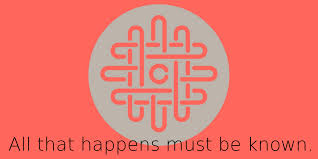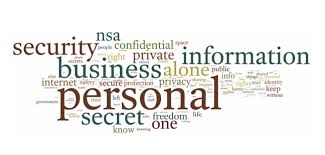December 26, 2014 – A recent Pew Research poll, the results released in November, paint a disturbing picture about American concerns regarding the full implications of “big data.” If unfamiliar with the term “big data” it refers to collections of data sets that can be mined and analyzed for patterns and trends providing insight into human behavior. It is the kind of data that the National Security Agency mines and analyzes in search of chatter that reveals a future terrorist strike. It is data that a company like IBM’s Watson analyzes to advise businesses on strategy, doctors on diagnoses, and beats the best humans at Jeopardy.
We are awash in it as more of what we humans do gets recorded and entered into computer systems tied together by the Internet. Big data is global, bigger than any single database kept by the largest corporations. It is so massive that a whole set of new tools have been created to mine it. Companies like SAS who provide expertise through a range of tools dubbed analytics. Analytics mine these huge and diverse datasets, combining information and detecting the many patterns that can provide answers of value to government, and business. And with data growing at a rate of 40% per year, the business of data mining is an arms race filled with new algorithms designed by programmers who seek answers to questions.
All of this focus on big data is creating waves of concern in the minds of the general public as the Pew Research poll reveals. Here are some of its findings:
- 91% agree or strongly agree that consumers have lost control of personal information collected by companies.
- 88% believe that inaccurate information about themselves would be difficult to remove from the online world. And 32% between ages 18 and 29 have tried and failed to remove information about themselves from the online world.
- 80% are concerned about government monitoring of telephone calls and Internet communication.
- 80% who use social networking are concerned about 3rd parties accessing what they share online.
- 70% on social networking sites express concern about government accessing what they share online.
- 55% expressed a willingness, when shopping online or using a free online service, to share some information about themselves.
- 46% of cell phone users did not feel secure sharing private information over a mobile network.
- Only 36% were comfortable with the statement, “t is a good thing for society if people believe that someone is keeping an eye on the things that they do online.”
This overall insecurity is largely fed by public fear of government surveillance, and to a lesser degree, sees commercial data sharing as equally guilty. Which brings me to a book I just finished reading, a novel called “The Circle” by Dave Eggers. Given to me by a good friend in the financial sector, I finally got around to reading it over the last two days and found it very difficult to put down.
Without ruining the plot for those of you who will want to read this book, it is about a post-Google like company that builds tools to make the Internet more accessible, and in the process learns a signifcant amount about each of its users. What it chooses to do with that information is the essence of the story.
George Orwell would have written this book if he had lived in the Internet Age. But Eggers does a pretty good job telling the story about a company focused on making all of us transparent, declaring that secrets and privacy are equivalent to theft. He would find the results of the Pew Research poll prophetic.
The Circle, the name of the book and the company is about to create a new world where we no longer have secrets because everything is known. All is transparent. In the minds of the brain trust of the company, the closing or completion of the circle will manifest a new utopian existence for all global citizens. But is this Utopia or mob rule. I’ll leave the rest of the plot for you to read and welcome your comments about the novel which I would love to see appear here.










